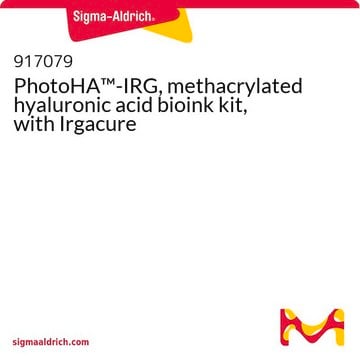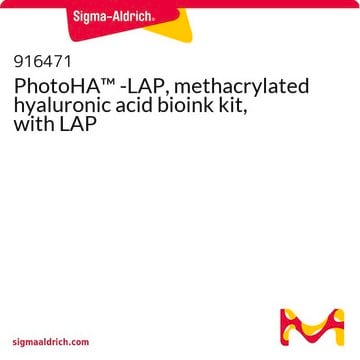917575
PhotoCol™-IRG, methacrylated collagen bioink kit, with Irgacure
Sinónimos:
3D Bioprinting, Bioink, Collagen
About This Item
Productos recomendados
description
Methacrylated collagen:
Degree of methacrylation ≥ 20%
Product components :
Methacrylated collagen (100 mg)
20 mM acetic acid (50 mL)
Neutralization solution (10 mL)
Irgacure photoinitiator ( 100 mg)
Quality Level
sterility
sterile; sterile-filtered
impurities
≤10 EU/mL Endotoxin
storage temp.
2-8°C
Application
Legal Information
hcodes
pcodes
Hazard Classifications
Aquatic Chronic 2
Storage Class
10 - Combustible liquids
Certificados de análisis (COA)
Busque Certificados de análisis (COA) introduciendo el número de lote del producto. Los números de lote se encuentran en la etiqueta del producto después de las palabras «Lot» o «Batch»
¿Ya tiene este producto?
Encuentre la documentación para los productos que ha comprado recientemente en la Biblioteca de documentos.
Nuestro equipo de científicos tiene experiencia en todas las áreas de investigación: Ciencias de la vida, Ciencia de los materiales, Síntesis química, Cromatografía, Analítica y muchas otras.
Póngase en contacto con el Servicio técnico








